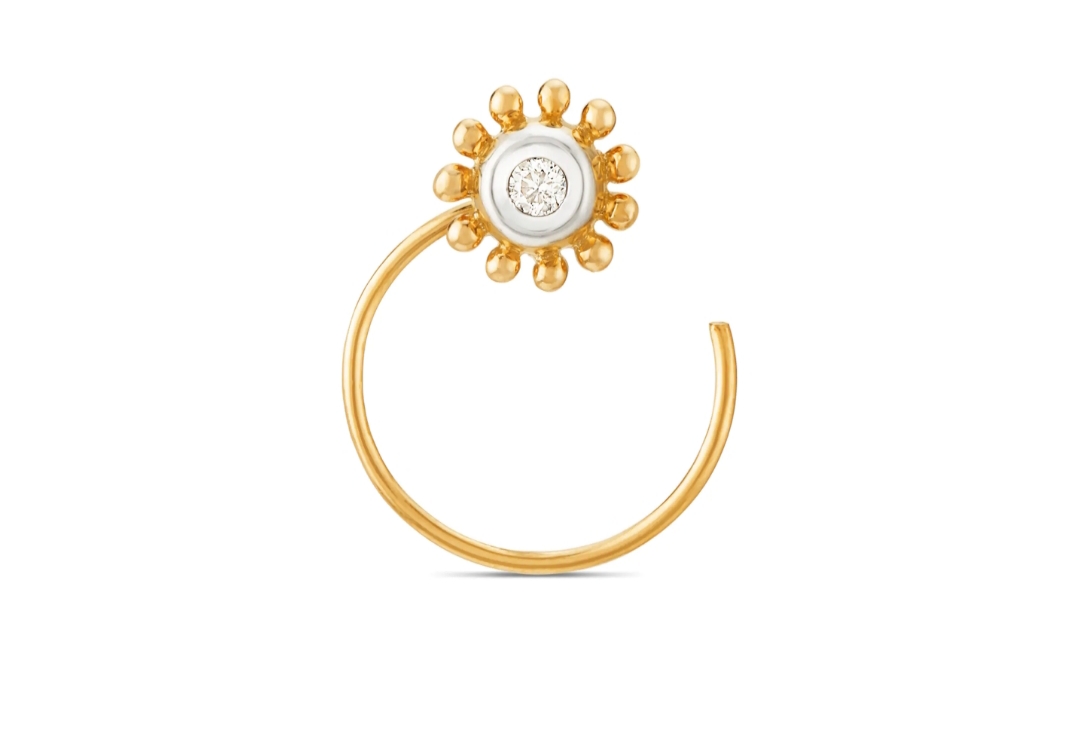Trending Now
- IPL 2024 begins with a bang. First contest between CSK and RCB.
- Election commission allots mike symbol to Naam Thamizhar Katchi
- AIADMK promises to urge for AIIMS in Coimbatore, in its election manifesto.
- Ponmudi becomes higher education minister.
Health & Lifestyle
11 Unhealthy Relationship Habits And How To Break Them
![]() April 3, 2018
April 3, 2018
Habit: Letting insecurity erode trust
Often one of the partners has insecurities and becomes unduly suspicious and possessive, keeping tabs on the partner’s whereabouts, questioning every friendship and wanting a minute to minute account of their partner’s day, without evidence of any misdemeanour or breach of trust. This might stem from having heard of or seen, transgressions by a parent or any other trusted figure.
How to fix it
By not generalising that all men/women are capable of breaking trust. Go by actual experience of your partner instead of imagining the worst or cross questioning your partner to the point of frustration and fatigue in him/her. Don’t stretch your suspicions to the point that you push your partner away.
Habit: Letting inadequacy feelings make you needy
Often one of the partners might be a ‘bottomless pit’, constantly needy for validation, clingy and almost parasitic, seeking reassurance that one is loved. When you allow your feelings of inadequacy to play out in your relationship, you burden the relationship with an unreasonable expectation of making you feel ‘good enough’.
How to fix it
By knowing that it is because you harbour feelings of inadequacy that you might ‘misperceive’ your partner’s words and actions, and make you seek constant reassurance. Do not allow your sense of self worth be defined by your relationship/partner. You need to be self-nurturing in a way that empowers and liberates you to give and receive love in an adult-adult manner.
Habit: Letting routine and boredom set in
Often couples become slaves to routine and are merely coordinating logistics, home chores, discussing EMIs, watching TV, ordering in at times, or at best going for a movie or dinner at the same places. Over time boredom could set into the relationship, and either one or both may start looking for a new stimulus outside the relationship.
How to fix it
By sharing a new activity, learning something together, or starting an exciting project. It could be joining cooking/dancing classes, learning a new sport/language, writing a book or starting a YouTube channel together, hiking or backpacking at relatively unfrequented destinations, volunteering or starting a project for the underprivileged or any other target group, and in general something that excites and fills both of you with vigour.
Habit: Letting your eyes stay glued to the screen rather than on each other
Often one or both partners are more tuned into their smartphones than to each other, even when they are with each other. The fear of missing out (FOMO) makes them miss out on the ‘real’ relationship. When likes, emojis, Instagram and Snapchat start replacing ‘real’ smiles and meaningful conversations with the one in front of you, it’s a warning sign for the health of the relationship.
How to fix it
By putting your phone away, turning off the notifications and ringer, and putting it on voicemail, while you’re with your partner. Ensuring undivided focused attention and quality time with your partner relaxing and casually chatting in the same ‘room’ as opposed to the ‘chat room’, will go a long way in keeping the relationship meaningful.
Habit: Letting seriousness replace lightheartedness
Very often relationships become the cohabitation of two serious individuals working for their ‘daily bread’. Even if they are bringing in enough for their daily lives and savings, they forget that the money is to ‘live’ , ‘love’ and ‘laugh’. They allow life to pass by without living it, while they are busy filling their bank accounts.
How to fix it
By maintaining a lightheartedness in life and within the relationship. While it is true that there might be real life struggles too, yet staying lighthearted and being able to laugh is important, as it helps to cope better. Counting your blessings, laughing at your on goof-ups and those of your partner, being amused by the glitches and frustrations in everyday life, will ensure that you enjoy your relationship and your life together.
Habit: Letting parenting take over coupling
Often couples allow their roles as parents to overshadow all else including being a couple. Getting busy with kids’ daily routines and bedtime, planning healthy food for them, homework and exams, PTAs, visiting only child-friendly places, and basically allowing their lives to revolve and be planned only around the kids. Kids of such parents grow up entitled, display narcissistic tendencies, or then become anxious and self-doubting as they feel they can do nothing without the intervention of parents, or then feel indebted and guilty pursuing their own happiness as they view their parents as having sacrificed their own joy for them. Kids who see loving couples as their parents feel liberated to pursue their own happiness and have a healthy role model to emulate in their own life.
How to fix it
By protecting the couple’s space by drawing boundaries with kids and specifically telling them that ‘it’s now Papa and Mama’s time’, whether it’s to talk privately or go for an after dinner walk without the kids or going to bed by shutting the door. A ‘Do not Disturb’ sign can be put outside the bedroom to give the message clearly to the kids. Date nights and weekend getaways by asking family or friends to babysit is important. Delegating some tasks and dumping some non-essentials to grab relaxed couple’s time everyday will go a long way in keeping the relationship mutually fulfilling.
Habit: Letting intimacy go down on your priority list
Often partners allow physical intimacy to be ignored due to a hectic pace of life – work, kids, socialising, family commitments etc. Remember about physical intimacy – you either use it or lose it. It’s not only about sex, but about connecting with each other in a ‘special’ way that you wouldn’t with anyone else.
How to fix it
By scheduling intimacy on your weekly date night. Don’t wait for your partner to initiate always. Be proactive. Talk about the upcoming date and build up to it. Ensure that intimacy features on your priority list at a regular frequency, along with any surprise spontaneous moments.
Habit: Letting toxic communication become the norm
Often verbal and non-verbal communication could be toxic between partners, by either resorting to put-downs, sarcasm, threats and personal attacks, or by being unresponsive, aloof and switched off. This impedes problem-solving and instead multiplies problems.
How to fix it
By consciously conveying sensitive matters and your concerns in as constructive a way as possible, and by listening respectfully. The truth does not have to be unkind, and your strong feelings too can be communicated without being accusatory. There is nothing worse than not being listened to by your significant other, so ensure that you are an attentive, empathetic and actively responsive listener to your partner.
Habit: Letting a fault finding mindset take over
Often one tends to get so caught up with fault finding and remaining busy with making a negative inventory of one’s partner, that it creates a depressive environment in the relationship for both. We forget that we are all ‘perfectly imperfect’ and have strengths and limitations. If we see our partner as all ‘bad’, it will leave no scope for a mutually fulfilling relationship.
How to fix it
By consciously looking for and listing things that you value, appreciate, admire and like in your partner as human qualities, talents or special abilities, and communicate the same. Express genuine gratitude for any help, support or encouragement you might have received at any point from your partner.
Habit: Letting apologies remain unexpressed and being unforgiving
Relationships go downhill because of a lack of humility in admitting errors, apologising sincerely and making amends. And even if genuine apologies are extended, there is a reluctance to forgive and move on. Denying the other an ’emotional closure’ is like having a ticking time bomb in the relationship.
How to fix it
By realising that we are all fallible human beings and make human errors, therefore ‘do unto others as you would have them do unto you’. Be quick to apologise and quick to forgive. Ensure that there is never a ‘pile up’ of issues. Remember that humility and generosity of the heart, is the key to harmony in the relationship.
Habit: Letting the past contaminate the present
Often one of the partners might keep bringing up a past negative incident with the other like a ‘trump card’, to gain leverage and to win a weak argument in the here and now. The question is – ‘Do you want to win or to be happy ?’ If you keep allowing the ‘here and now’ to be contaminated by the ‘there and then’, you will not have a fair chance for a future together.
How to fix it
By focusing all that has changed for the better. Remember that we are all a work in progress including your partner. Give a benefit of doubt to the other just like you would want the other to give to you. Choose ‘happiness’ over ‘winning’ and write your own story that ends with, ‘and they lived happily ever after’.























